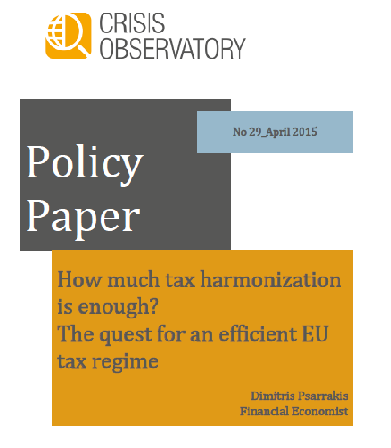Dimitris Psarakis, Financial Economist
The financial crisis revealed the need for a sound fiscal policy in the EU. Taxation is a critical component for fiscal deepening in the common market. The LuxLeacks cases made clear that it is impossible for the common market to function without distortions unless a more coherent rule-based approach is in place. According to the European Scoreboard of Macroeconomic Imbalances, the EU corporate investments attractiveness in the post-crisis period was reduced spectacularly for the member-states which are placed under a fiscal consolidation programme, like Greece and Portugal, whereas Luxembourg is 216% more attractive. This is a clear signal of harmful tax competition which facilitates tax evasion, tax avoidance and aggressive tax planning. It also indicates that in the field of tax transparency, the tax coordination method, the prevailing governance method in addressing the intra-market tax issues, has failed. Thus, a more harmonised approach is needed. However, the proponents of tax harmonisation, who view it as an alternative governance method to tax coordination, face fierce political resistance by the Council, the Commission and the conservative wing of the European Parliament. In this article the issue of tax harmonisation is examined in terms of its operational merit as a necessary welfare maximising tool for the control of market inefficiencies and not as a norm for wealth redistribution.



